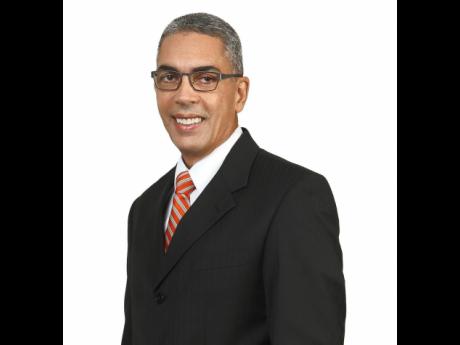BOJ joins multilaterals in caution on subsidies
The Jamaican central bank has joined calls led by the big multinational financial institutions for governments to be careful how they go about implementing or prolonging the use of subsidies to cushion their populations and productive sectors...
The Jamaican central bank has joined calls led by the big multinational financial institutions for governments to be careful how they go about implementing or prolonging the use of subsidies to cushion their populations and productive sectors against the continued economic pummelling from multiple forces, including the COVID-19 pandemic, slowed growth, high inflation, rising interest rates and growing debt.
“Giving assistance to persons in this period is important, without doubt, but what we need to be careful of is the kind of assistance that is given, so that when inflation recedes and we get back to a normal state of inflation, those assistances (are not) baked in and hard to remove,” Richard Byles, governor of the Bank of Jamaica, BOJ, said on Tuesday at his quarterly monetary policy briefing.
The BOJ governor noted that in times of crisis, it was problematic for government to implement subsidies that could be interpreted as permanent, and then remove them later.
He is suggesting another course: targeted subsidies of temporary duration.
“There is another way, which is to give subsidies or special, focused assistance to persons or to sectors for specific periods of time – four months, six months, eight months – so that everybody knows that it is temporary and that it expires. If you leave those subsidies in place, that itself is a burden on the fiscal side and could restrain us from achieving what we want to achieve by 2028, which is 60 per cent debt to GDP,” Byles said.
The BOJ itself had mandated several short-term measures to cushion the pandemic fallout on businesses, including a temporary freeze on dividend payments, the preservation of banks’ cash, and encouraging loan moratoria to the productive sector.
It turned out that the central bank’s record-low policy rate of 0.5 per cent that remained in place for more than two years, from 2019 to 2021, was itself a temporary facilitation.
Byles made the disclosure while addressing questions on the monetary authority’s aggressive approach in the form of rapid and sustained increases in the policy rate – that is, the interest paid on overnight deposits parked at the BOJ by regulated deposit-taking institutions.
BOJ has been unapologetic about the 450-basis-point hike in interest rates over eight months of adjustments since the end of September 2021. The interest rate hikes – the most recent of which pushed the policy rate to 5.0 per cent on May 19 – plus measures to tighten liquidity, are meant to contain rising inflation.
However, at 11.8 per cent as of April, headline inflation is twice as high as the 4 to 6 per cent statutory target range that the central bank is tasked to manage.
“In September and earlier, we were being very highly accommodative of growth and that is why we brought rates down so low,” said Byles.
“But when we saw from about August that inflation was on the uptick and likely to be there for a while, and that it was going to be aggressive, we had to move pretty aggressively also. So, you have to judge that 450-basis-point movement since October of last year against the background that we are coming from 0.5 per cent,” Byles said.
Meanwhile, the central banker is staying clear of offering any advice to the Jamaican government on how it should respond to the increasing agitation among public-sector workers, who are pressing for more pay and the retention of subsidies such as motor vehicle duty waivers.
“The bank’s position is strictly an economic one. If you have a substantial rise in wages and you don’t have an equivalent rise in productivity, then you do have an impetus for inflation. That’s just economics 101, and that will have to work itself out in the economy,” he said.
The International Monetary Fund, IMF, has in recent months been pressing some of the countries knocking on its doors for economic bailouts, to scrap various subsidies, including those on fuel and energy, in order to close their fiscal gaps and reduce high debt ratios.
During a recent visit to Jamaica, a top World Bank official appeared to have moderated that multilateral’s stance on subsidies, noting that the current global economic climate of rising inflation, lower growth and higher interest rates has led to stagflation and increased debt service costs for countries.
“Countries will have to adjust their monetary policies. I think the key is really for countries to ensure that they continue their macro sustainable policies, and I would say Jamaica actually gets good marks on that. You have to make sure that in this kind of constrained world, whatever fiscal space you still have is used effectively,” Dr Mari Pangestu, the World Bank’s managing director for development policy and partnerships, told the Financial Gleaner in an interview earlier this month.
“If you are going to have subsidies, let’s make it very targeted and specific to the needs. Usually, its about protecting vulnerable groups and protecting certain groups in the society that have been hit hard, either by COVID or climate or by high food prices,” Pangestu said.
“And then you have to focus on how to use the remaining fiscal space to focus on what is important for development, and that’s usually infrastructure and human capital,” she added.

